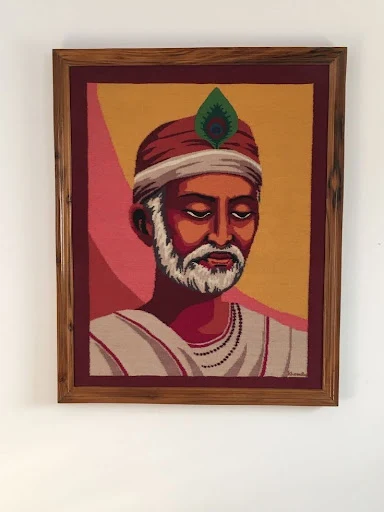Sant Kabir Das, often simply referred to as Kabir, was a prominent poet, saint, and philosopher in India during the 15th century. His life and teachings continue to inspire millions of people with their profound wisdom, social commentary, and spiritual insight. Kabir's poetry, which was composed in simple yet eloquent language, transcends religious boundaries and remains relevant to this day.
Kabir's exact birthdate and parentage are subjects of debate, but it is widely accepted that he was born around 1440 CE in what is now known as Varanasi, India. He was born into a family of Muslim weavers, and his background was marked by diversity, as he later became influenced by both Hindu and Islamic traditions. This unique blend of influences played a pivotal role in shaping his spiritual outlook.
Kabir's teachings are characterized by their universality and emphasis on the oneness of God. He emphasized that God is formless and beyond religious labels, a concept that challenged the rigid boundaries of Hinduism and Islam during his time. His philosophy was rooted in the idea of devotion (bhakti) to the divine, emphasizing love and inner experience over ritualistic practices.
Kabir used poetry as his primary medium to convey his spiritual insights. His verses, often in the form of dohas (couplets), are simple yet profound, making them accessible to people from all walks of life. In his poetry, he critiqued religious hypocrisy, caste discrimination, and social inequality, advocating for a path of righteousness, humility, and compassion.
Unity of God: Kabir stressed that there is only one ultimate reality, which he referred to as "Ram," "Hari," or "Allah." He believed that different religious paths were like rivers merging into the same ocean of divinity.
Inner Journey: Kabir emphasized the importance of self-realization and inner contemplation as the means to attain a deeper connection with the divine. He often spoke about the "sadhana," the spiritual journey within oneself.
Equality: He vehemently opposed the caste system and social hierarchies, emphasizing the equality of all human beings. His teachings were inclusive and transcended the divisions of caste, creed, and religion.
Kabir's teachings had a profound impact on Indian society. They contributed to the Bhakti and Sufi movements, both of which emphasized personal devotion to God and transcended religious boundaries. Kabir's influence can also be seen in the formation of the Sikh religion, as his verses are included in the Guru Granth Sahib, the holy scripture of Sikhism.
His poetry continues to be widely read and revered, not only in India but also around the world. His messages of love, unity, and spiritual awakening resonate with people seeking a deeper understanding of life's mysteries.
Sant Kabir Das was a remarkable figure in the history of India, whose teachings transcended the boundaries of religion and caste. His spiritual poetry and philosophy continue to inspire people to this day, offering a timeless message of love, equality, and the pursuit of the divine. Kabir's legacy serves as a reminder of the power of simple yet profound wisdom to transform society and touch the hearts of individuals seeking a deeper connection with the divine.





No comments:
Post a Comment